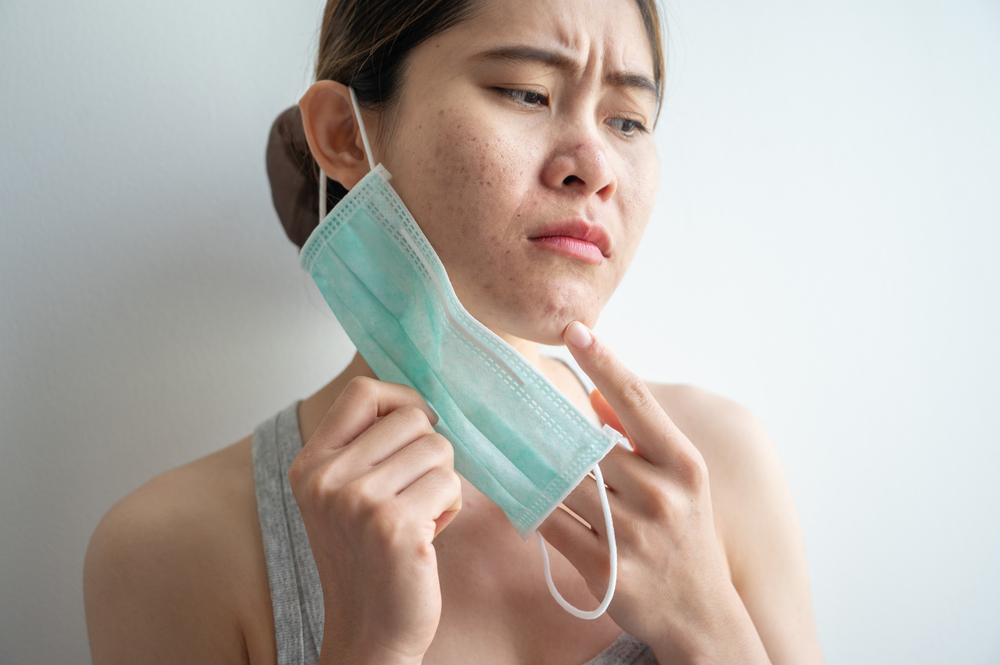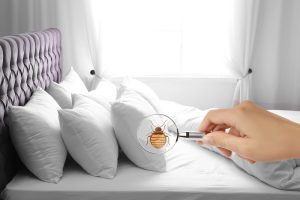In a year dominated by the pandemic, wearing a face mask has become part of our daily routine. If you’ve noticed pimples appearing on areas usually covered by the masks, you might be experiencing mask acne, or “maskne”. Covering up is still important. But in this article, uncover the truth of maskne – what causes it, and ways to treat or prevent it from happening.
What causes maskne?
The most common kind of maskne is “acne mechanica”, which is a type of acne caused by friction, heat, or pressure on the skin. Breathing and talking traps warm, moist air under our masks. This creates a warm and humid environment which is ideal for the growth of bacteria. Our pores also become clogged as excess oil, sweat and bacteria build up.
There’s also the stress from the pandemic, and all of this combined makes getting maskne all the more likely.
Preventing maskne
Wearing a mask for prolonged periods each day makes it hard to prevent an outbreak of maskne, but we have some tips that can (hopefully!) prevent you from getting it.
Wash your face before wearing a mask
This prevents oil, sweat and bacteria from being trapped on your face. Use a gentle cleanser that is non-oily and does not contain sodium lauryl sulfate, as it is harsh on the skin.
Use a non-comedogenic moisturiser
Apply a moisturiser after washing your face. Use a non-comedogenic product to prevent your pores from getting clogged.
Avoid excessive makeup
Makeup like foundation, concealer and blush add up to layers on the skin which can lead to clogged pores. Makeup residue can also soil your mask. If you have to use makeup, do not be too heavy handed during application.
Change your mask twice daily
This will reduce the amount of oil and bacteria built up in the mask and on your face. If you get to wash your face during the day after hours under the mask, that’s even better!
Remove your mask for 15 minutes every 4 hours
Doing so will help give your skin a break. Of course, you should only do this when you are able to keep a safe distance from other people.
Treating maskne
So, you’ve followed our tips for avoiding maskne. However, the work, stress and prolonged mask wear is too much, and you still fell victim to maskne. Well, we have some tips for how to manage maskne right here!
Do not squeeze your pimples!
We know, it’s tempting to pop that pimple. But popping a pimple only delays your body’s natural healing process. And if not done right, could risk you getting permanent acne scars.
Stay hydrated
Your skin produces more oil when you are dehydrated, so drink up! We recommend at least eight glasses of water each day.
Spot treat your pimples
Target your pimples with over-the-counter acne treatments that contain salicylic acid or benzoyl peroxide. To prevent further breakouts, spread a thin layer not just on your acne, but on all acne-prone areas.
Visit a dermatologist
If your acne persists after trying all these tips, it may be time to consult a dermatologist who can craft a treatment plan for your specific situation.
Keep the mask on
Wearing a mask or getting maskne may not be the most pleasant experience, but please do not throw out your mask. Maskne can be prevented with good personal hygiene habits, a healthy lifestyle and diet, and treated with over-the-counter medications or by dermatologists. You can even take comfort in the fact that a mask at least hides the problem. However, if you do end up with the virus, your skin will be the least of your worries.
Watch a dermatologist, address more questions here!













